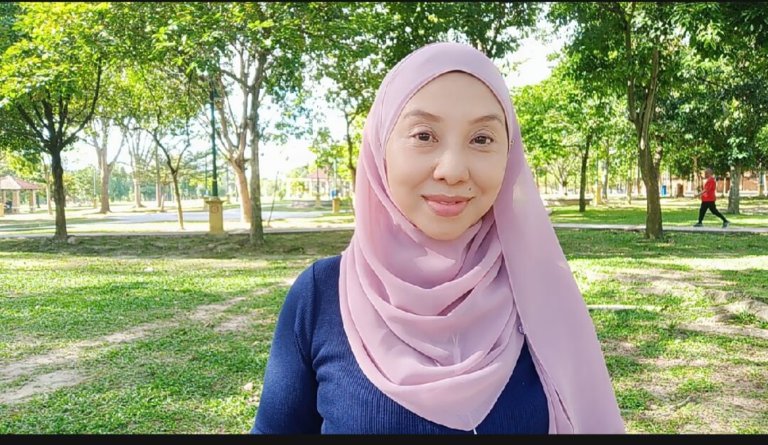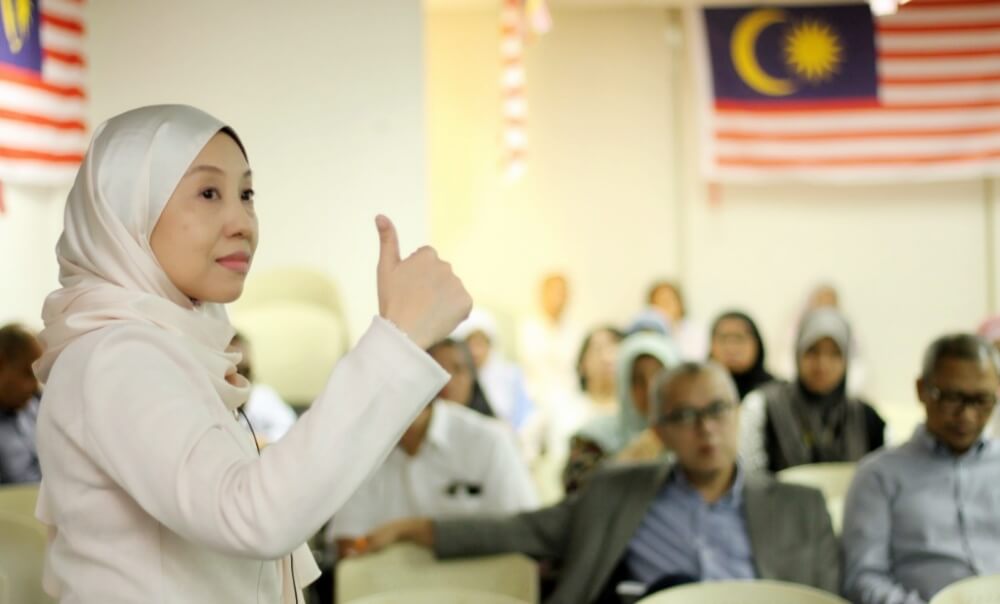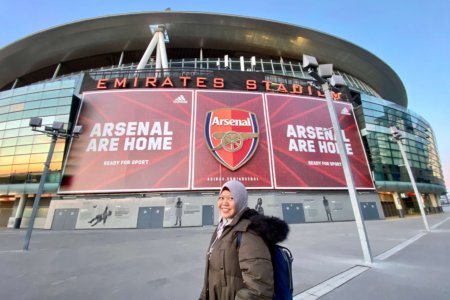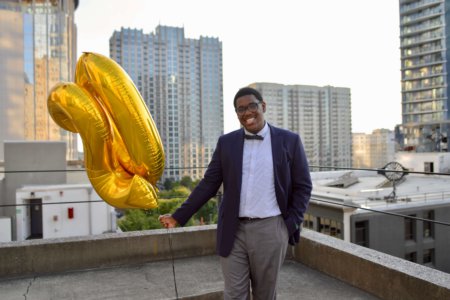
Growing up in a low-income family in Malaysia, Khairul Abu Bakar and her family lived in a small rented house for more than 10 years. A short walk away was their landlord’s house, where she would go often to hang out with one of the children there who she treated like an older sister. They would discuss everything from clothes, relationships to schooling with her.
When it was time to apply to university, she advised Abu Bakar to apply for a computing course because there would be huge job opportunities in the future. She was right.
After completing her degree at the University of Kent, Abu Bakar would go on to work for some of the top multinationals in Malaysia: Sony, Astro, and Sapura. Today, she is an independent consultant in the banking industry — the culmination of 25 years of success that began with the University of Kent.
“My time studying abroad at the University of Kent was all about experiencing new places, new people and new challenges,” she says. “I learned how to be independent, deal with the unexpected, and adjust quickly to unfamiliar situations.”
Below we talk to her about her studies at the University of Kent, her advice to her younger self, and tips on how to budget finances as a student abroad:
What made you decide to study at the University of Kent?
I love the UK because it has a worldwide reputation for its higher education quality and globally recognised degrees. However, back then, there was no Google so you had to rely on the uni brochures to get most of the information.
The University of Kent was one of the top ones and I loved what I saw in the brochure — a great institution with a beautiful landscape. Plus, there were so many good testimonials from their students.
The University of Kent is where I met a lot of great lecturers and also has top-notch campus facilities where I felt safe and comfortable.

“The University of Kent is where I met a lot of great lecturers and also has top-notch campus facilities where I felt safe and comfortable,” she says. Source: Khairul Abu Bakar
What were your more outstanding classes there?
Mathematics, I love and have enjoyed numbers since I was a kid.
Are there any practical elements during your time at uni you still use today?
Process thinking. Although I didn’t pursue my work in the computing or engineering field, I noticed that I can think of processes very well.
Due to that, I was able to get my work done systematically and fast. In my career, I was assigned to a few projects that involve system implementation such as the SAP Procurement module and GST implementation.
The computing knowledge that I learned at uni helped me a lot. I was able to think logically and work expeditiously.
What do you think most graduates in your uni programme didn’t know until they began their careers?
Communicating well is very important. When I started my career at Sony, I was shy and quiet. It could be part of an engineer’s personality trait which is reserved and lacked social skills.
Even though I worked hard, my performance went unnoticed. I then realised that technical knowledge and working hard was not enough.
Learning to communicate well will help you move to the top. For instance, speaking up at meetings, taking responsibility, and standing out in the workplace.
Walk us through your career trajectory and how you think your studies abroad gave you more of an advantage.
I worked in procurement in various industries such as manufacturing, broadcasting and oil & gas, for almost two decades. Then, I moved to become an independent consultant in the banking industry.
My time studying abroad at the University of Kent was all about experiencing new places, new people and new challenges. I learned how to be independent, deal with the unexpected and adjust quickly to unfamiliar situations.

“Learning to communicate well will help you move to the top. For instance, speaking up at meetings, taking responsibility, and standing out in the workplace,” she tells us. Source: Khairul Abu Bakar
It gave me the courage to do things differently and stand out from the rest. Plus, it’s an inspiration to explore new things responsibly.
The big lesson here is to live my life with no regrets. The world is big and has many places to explore and build things from scratch. What matters is taking one step at a time and moving forwards.
What was the interview process for your first job like?
It was back in 1996 at an electronic manufacturing plant. A few departments were looking to hire fresh graduates so the interview was conducted in a group session.
For each session, three potential candidates were called for the interview meeting. There were five managers interviewing us from human resources and related business units. There, were asked about our backgrounds, qualifications, skills and career interests.
What’s your advice for fresh graduates entering the workforce?
Take responsibility for your lives. My first job was in Sony — a big company. I learned good discipline, high responsibility and to always keep improving myself.
Now, I’m an independent consultant where I learn to have passion and how to dream. It doesn’t matter whether you work in a small or big company, there are always things to learn.
Your responsibility is to see the good things in the organisation and give it your best. That’s how you learn and grow in your career.
If you could go back in time for a one-on-one mentoring session with yourself, what would your advice be?
Be human and live your best life. Back in my corporate days, I was too busy and too serious. I worked like a machine and aged very fast. Looking back, I wish I could be kinder to myself.
How did you spend your first paycheck?
I gave an amount to my parents. That was the only spending I can remember from my first paycheck because it made me really happy and proud.
What matters more to you: work satisfaction, salary, social life or a work/life balance and why?
Work satisfaction. I value the job and organisation that gives meaningful work and I can see how I can progress in terms of skills, salary, knowledge, and experience.
What top tips for budgeting do you have for students abroad?
Learn to save money with purpose. For the money you get from allowances, put aside at least 10 to 20% into your savings. These savings will grow over time and you can use them for something big or meaningful (it can be travelling, buying a car, etc).
A big chunk of your monthly expenses will be on housing. So, compare the cost of living on campus and off-campus. Look at all your options which are inclusive of transportation and utilities and see which is the most convenient (and affordable).










